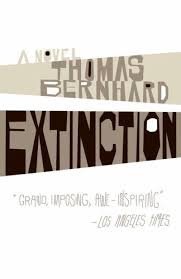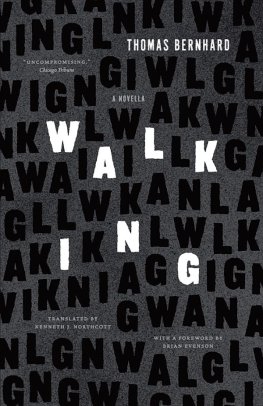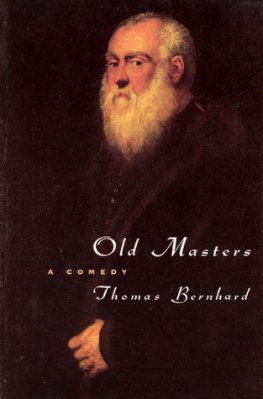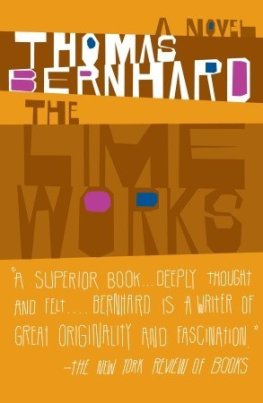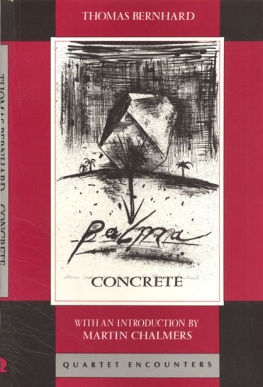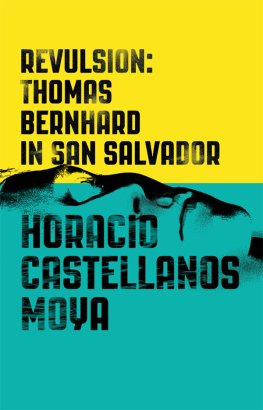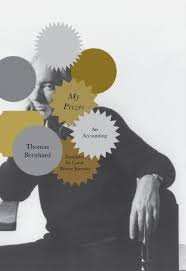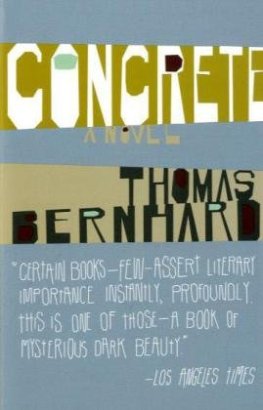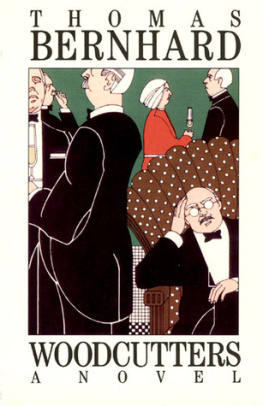Thomas Bernhard - Frost: A Novel (Vintage International)
Here you can read online Thomas Bernhard - Frost: A Novel (Vintage International) full text of the book (entire story) in english for free. Download pdf and epub, get meaning, cover and reviews about this ebook. year: 2008, publisher: Vintage, genre: Detective and thriller. Description of the work, (preface) as well as reviews are available. Best literature library LitArk.com created for fans of good reading and offers a wide selection of genres:
Romance novel
Science fiction
Adventure
Detective
Science
History
Home and family
Prose
Art
Politics
Computer
Non-fiction
Religion
Business
Children
Humor
Choose a favorite category and find really read worthwhile books. Enjoy immersion in the world of imagination, feel the emotions of the characters or learn something new for yourself, make an fascinating discovery.

- Book:Frost: A Novel (Vintage International)
- Author:
- Publisher:Vintage
- Genre:
- Year:2008
- Rating:5 / 5
- Favourites:Add to favourites
- Your mark:
- 100
- 1
- 2
- 3
- 4
- 5
Frost: A Novel (Vintage International): summary, description and annotation
We offer to read an annotation, description, summary or preface (depends on what the author of the book "Frost: A Novel (Vintage International)" wrote himself). If you haven't found the necessary information about the book — write in the comments, we will try to find it.
Frost: A Novel (Vintage International) — read online for free the complete book (whole text) full work
Below is the text of the book, divided by pages. System saving the place of the last page read, allows you to conveniently read the book "Frost: A Novel (Vintage International)" online for free, without having to search again every time where you left off. Put a bookmark, and you can go to the page where you finished reading at any time.
Font size:
Interval:
Bookmark:
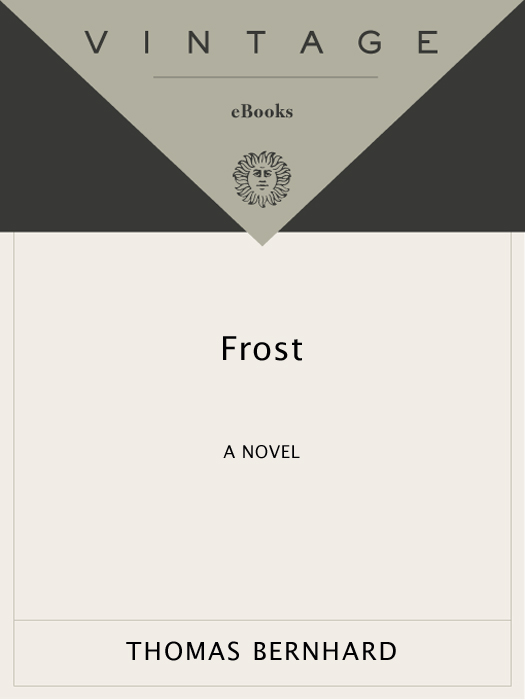
Thomas Bernhard
FROST
Thomas Bernhard was born in Holland in 1931 and grew up in Austria. He studied music at the Akademie Mozarteum in Salzburg. In 1957 he began a second career writing plays, poems, and novels. The winner of the three most distinguished and coveted literary prizes awarded in Germany, he has become one of the most widely translated and admired writers of his generation. His novels published in English include The Loser, The Lime Works, Correction, Concrete, Woodcutters, and Wittgensteins Nephew; a number of his plays have been produced off Broadway, at the Tyrone Guthrie Theatre in Minneapolis, and at theaters in London and throughout Europe. The five segments of his memoir were published in one volume, Gathering Evidence, in 1985. Thomas Bernhard died in 1989.

ALSO BY THOMAS BERNHARD
Concrete
Correction
Extinction
Gargoyles
Gathering Evidence
The Lime Works
The Loser
Wittgensteins Nephew
Woodcutters

FIRST VINTAGE INTERNATIONAL EDITION, JANUARY 2008
Translation copyright 2006 by Alfred A. Knopf, a division of Random House, Inc.
All rights reserved. Published in the United States by Vintage Books, a division of Random House, Inc., New York, and in Canada by Random House of Canada Limited, Toronto. Originally published in German as Frost by Suhrkamp Verlag, Frankfurt, Germany, 1963. Copyright Insel Verlag, Frankfurt am Main, 1963. This translation originally published in hardcover in the United State by Alfred A. Knopf, a division of Random House, Inc., New York, in 2006.
Vintage is a registered trademark and Vintage International and colophon are trademarks of Random House, Inc.
This is a work of fiction. Names, characters, places, and incidents, either are the products of the authors imagination or are used fictitiously. Any resemblance to actual events, locales, or persons, living or dead, is entirely coincidental.
The Library of Congress has cataloged the Knopf edition as follows:
Bernhard, Thomas.
[Frost. English]
Frost / Thomas Bernhard ; translated from the German by Michael Hofmann.
p. cm.
I. Hofmann, Michael, 1957 Aug 25. II. Title.
PT2662.E7F713 2006
833.914dc22 2006040886
eISBN: 978-0-307-77348-7
www.vintagebooks.com
v3.1
A medical internship consists of more than spectating at complicated bowel operations, cutting open stomach linings, bracketing off lungs, and sawing off feet; and it doesnt just consist of thumbing closed the eyes of the dead, and hauling babies out into the world either. An internship is not just tossing limbs and parts of limbs over your shoulder into an enamel bucket. Nor does it just consist of trotting along behind the registrar and the assistant and the assistants assistant, a sort of tail-end Charlie. Nor can an internship be only the putting out of false information; it isnt just saying: The pus will dissolve in your bloodstream, and youll soon be restored to perfect health. Or a hundred other such lies. Not just: Itll get betterwhen nothing will. An internship isnt just an academy of scissors and thread, of tying off and pulling through. An internship extends to circumstances and possibilities that have nothing to do with the flesh. My mission to observe the painter Strauch compels me to think about precisely such non-flesh-related circumstances and issues. The exploration of something unfathomably mysterious. The making of sometimes very far-reaching discoveries. The way you might investigate a conspiracy, say. And it is perfectly possible that the non-flesh-related, by which I dont mean the soulthat what is non-flesh-related, without being the soul, of which I cant say for certain whether it exists, though I must say I assume it does, that this thousand-year-old working assumption is a thousand-year-old truthbut it is perfectly possible that the non-flesh-related, which is to say, the non-cell-based, is the thing from which everything takes its being, and not the other way round, nor yet some sort of interdependence.
I took the earliest train at four thirty. Passed through sheer rock. When I boarded the train, I was shivering. Gradually I warmed up. Further, the voices of the workers coming home off the night shift. I felt for them right away. Men and women, old and young, but all with the same voices of utter exhaustion, from their heads and their breasts and their balls down to their boot soles. The men in gray caps, the women in red headscarves. They wrapped their legs in scraps of loden cloth; thats the only way they know of keeping the cold at bay. I knew at once that they were a group of snow-shovelers who had got on at Sulzau. It felt as warm as in a cows belly: the air felt as if it was being pumped from body to body with incredible pressure from some collective muscle. Doesnt bear thinking about! I pressed my back hard against the wall of the compartment. Because I hadnt slept all night, I dropped off. When I woke up, I saw again the trail of blood that trickled unevenly along the wet floor of the wagon, like a stream threading its way between mountains, ending up between the window and the window frame, under the emergency brake. It originated from a crushed bird that had been cut in half by a sudden jerk of the window. Maybe days ago. Shut so hard, there wasnt the trace of a draft. The conductor, going by in performance of his dismal duty, had taken no notice of the dead bird. But he must have seen it. I knew that. Suddenly I heard the story of a lineman who had been asphyxiated in a snowstorm, which ended: He never cared about anything. I dont know if it was my exterior, or something inside me, finding some expression, the aura of my thoughts, of my task, energetically preparing itself in mebut no one sat down near me, even though over time every seat became precious.
The train wheezed through the river valley. In my thoughts, I was once briefly at home. Then I was far away again, in some city I once walked through. Then I saw specks of dust on my left sleeve, which I tried to brush off with my right arm. The workers pulled out knives, and cut bread. They choked down great thick lumps of bread, and ate pieces of meat and wurst with them. Great chunks that no one would ever eat at a table. Only on their laps. They all drank ice-cold beer, and were evidently too enfeebled to laugh at themselves, even though they felt they were worth laughing at. They were so tired, it didnt even occur to them to do up their flies or wipe their mouths. I thought: When they get home, theyll fall straight into bed. And at five in the afternoon, when everyone else knocks off, theyll start again. The train rattled and plunged down, like the river running beside it. If anything, it seemed to be getting darker.
The room is as small and uncomfortable as my interns room in Schwarzach. If its the roar of the river thats unbearable there, here its the silence. At my request, the landlady took down the curtains. (Its always like that with me: I dont like having curtains in rooms that frighten me.) The landlady is disgusting to me. Its the same disgust I felt when I was a child and had to vomit outside the open doors of the slaughterhouse. If she were dead I would, today, feel no disgustdead bodies on the dissecting table never remind me of live bodiesbut shes alive, and living in a moldy ancient reek of inn kitchens. Apparently she likes me, though, because she lugged my suitcase upstairs, and offered to bring me breakfast in bed every morning, which is absolutely at variance with her normal practice. The painters an exception, she said. He was another long-stay guest, and long-stay guests enjoyed certain privileges. Even though, as far as innkeepers were concerned, they were more trouble than they were worth. How had I happened to wind up at her inn? By chance, I said. I wanted to recuperate quickly, and return home, where a mountain of work was waiting for me. She seemed understanding. I told her my name and showed her my passport.
Font size:
Interval:
Bookmark:
Similar books «Frost: A Novel (Vintage International)»
Look at similar books to Frost: A Novel (Vintage International). We have selected literature similar in name and meaning in the hope of providing readers with more options to find new, interesting, not yet read works.
Discussion, reviews of the book Frost: A Novel (Vintage International) and just readers' own opinions. Leave your comments, write what you think about the work, its meaning or the main characters. Specify what exactly you liked and what you didn't like, and why you think so.

